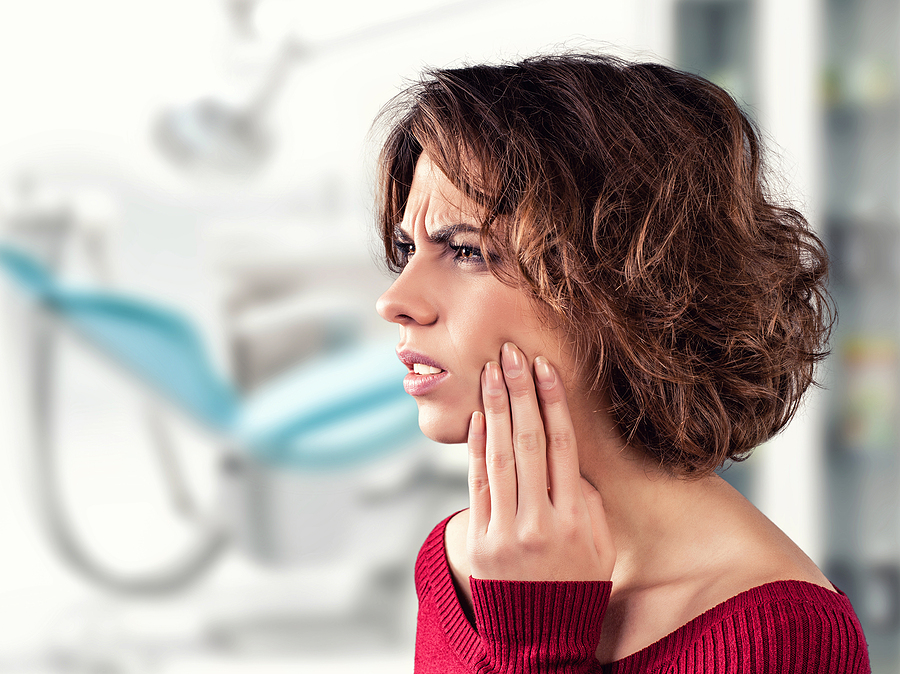Anyone who has had a dental abscess knows how painful they can be, so getting treatment promptly is incredibly important, as this will relieve pain as quickly as possible.
When it comes to treating dental abscesses, a course of antibiotics is often the most effective and easiest to deliver.
While other options include draining an abscess to release the pus and pressure, root canal treatment to extract the infection and clean the root canal, and removing the tooth, they are more invasive.
Therefore, both dentists and patients tend to opt for antibiotics as their first port of call, as it helps to fight the infection without having to undergo a procedure.
If there are no underlying dental problems, the issue can most likely be resolved after the course of antibiotics has finished, with the patient simply taking an oral medication and being able to avoid surgical treatment.
With this in mind, what is the best course of dental antibiotics for tooth abscesses?
Amoxicillin for dental abscesses
The most popular antibiotic to prescribe for a dental abscess is amoxicillin, which is a type of penicillin.
It is used for bacterial infections, and is not just effective against bacteria in the mouth, but also for chest, urine and ear infections.
Amoxicillin is given in a tablet or liquid form, so it can be administered at home, usually three times spread throughout the day.
It can be taken before or after food, and if a dose is missed, it can be taken as soon as remembered, so long as it is not too close to the next dose.
Why is amoxicillin effective?
Amoxicillin is preferred by dentists as it is one of the most effective antibiotics at preventing the infection from spreading, and has fewer side effects than other types of medication.
It is the most commonly prescribed antibiotic for dental infections as it can quickly stop bacterial growth, so it does not reach other teeth, the gums or even the jaw or neck.
Amoxicillin can also be used alongside other antibiotics, such as metronidazole, which means dentists are able to offer another course of treatment to help combat the infection, if the bacteria is proving to be resistant.
While antibiotics might not always be needed for a dental abscess if the infection is contained, it is recommended for those who have a weakened immune system or if the bacteria seems to be spreading and the pain is worsening.
Are there side effects of amoxicillin?
Like any pharmaceutical medication, there are side effects when taking amoxicillin. These include:
- Nausea
- Diarrhoea
- Vomiting
- Headache
- Allergic reactions, such as a rash, hives, facial swelling, or itchy skin
- Thrush
- Redness or blistering of skin
- Joint or muscle pain
- Skin rash with circular red patches
- Bruising of skin
- Dark urine or pale faeces
- Diarrhoea with blood or mucus
Not everyone sufferers from side effects, and some symptoms might be minor. However, it is important to consult a doctor or dentist if they appear to be worsening or are serious.
One in 15 people have allergic reactions to amoxicillin, and while most of these cases are minor, some can lead to anaphylaxis if not treated urgently.
Who should not take amoxicillin?
Amoxicillin is perfectly safe for the vast majority of people, but there are a few who are unable to take this antibiotic, as it could cause them harm.
These include:
- Pregnant women
- Anyone trying to get pregnant
- A breastfeeding mother
- Anyone who has had an allergic reaction to penicillins in the past
- Anyone who has had an allergic reaction to other medicines, foods or dyes in the past
- Anyone with kidney disease
It is also important to inform the prescriber if you are taking certain medications, as these might interact with the amoxicillin, rendering one or both of them ineffective.
These medicines include:
- Birth control pills
- Blood clot tablets
- Other antibiotics, such as tetracycline, erythromycin, chloramphenicol and sulfamethoxazole
- Allopurinol, which is prescribed to prevent gout and kidney stones, or during chemotherapy treatment
If any of these apply to you, it is essential you tell the prescriber either during your dental appointment or the online consultation, as this will impact whether they prescribe amoxicillin or not.
Can you treat dental abscesses without antibiotics?
Some people can get rid of their dental abscess without needing a course of antibiotics; for example, if their abscess is contained and they are in, otherwise, good health.
This is because their body is likely to be able to produce enough antibodies to fight against the bacterial infection.
However, if they are immuno-suppressed, they are unlikely to generate a build up of antibodies to stop the infection spreading. Therefore, they will need antibiotics to help, as the medication prevents bacterial growth, giving the body an opportunity to combat the infection.
Furthermore, if the infection has spread, it can be hard to produce antibodies to kill the bacteria faster than it is spreading, which would cause more pain and discomfort for the patient.
The best thing to do if you suspect a dental abscess is get it assessed as possible, as this reduces the likelihood of it turning into a more serious oral infection.
Regular check-ups are a must
Even booking an appointment to see your dentist when you are not worried about an oral health problem is a good idea, as they could detect something more serious at these regular check-ups that can be dealt with before they turn severe and painful.
Although it is hard to get an appointment these days, with 13 million people in England reporting they are struggling to receive dental care, it is important to keep trying.
According to the British Dental Association (BDA), 5.6 million adults have failed to get an appointment in the last two years, 1.25 million have been put off by the costs, and 780,000 are on waiting lists.
However, as many as 5.4 million people have not even attempted to make an appointment as they did not think they would be able to get one.
This is reflected in paediatric dental care as well, with nearly half of children having not seen an NHS dentist in the last 12 months, amounting to 5.35 million youngsters.
Regular check-ups, however, can treat tooth decay, provide oral hygiene advice, and do fillings, all of which can prevent dental infections and abscesses.
Order treatment online now for your dental abscess.







